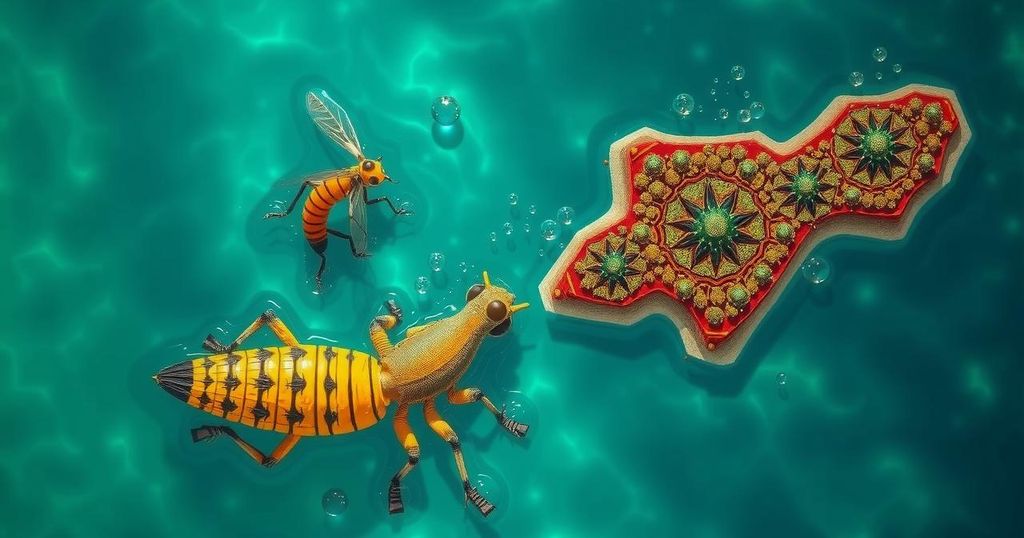Project 99: Advancing Biological Risk Assessment in Seychelles and Kenya

Project 99 is an initiative involving experts from Seychelles and Kenya, focused on creating a national biological risk assessment tool. The five-day workshop, part of a larger European Union project, aims to prepare for potential biological incidents over the next five years, incorporating a One Health perspective that acknowledges the interrelation of human, animal, and environmental health.
On November 25, 2024, in Victoria, Seychelles, a significant initiative known as Project 99 commenced with the aim of developing a biological risk assessment tool tailored for Seychelles and Kenya. The project involves a collaborative effort among experts from both nations, who are gathering at the Savoy Resort and Spa for a five-day workshop. The workshop engages approximately 30 experts across various fields, including health and agriculture, who will focus on identifying and mapping potential biological risks and incidents that may arise over the next five years.
The workshop is organized under the auspices of the European Union’s CBRN and Centres of Excellence initiative and aims to bolster the regional capacity for preparedness against biological threats. Dr. Jimmy Melanie, representing Seychelles, articulated that this training is paramount in the wake of rapid developments that might pose chemical, radiological, or biological risks. Notably, the workshop emphasizes biological threats, such as zoonotic diseases that might transmit from animals to humans, alongside the potential impact of plant toxins, viruses, and bacteria on human health.
Prior to this session in Seychelles, experts underwent training in Nairobi, Kenya, which introduced the national biological risk assessment tool. The project is structured to extend until 2026, at which point the experts anticipate being well-prepared to enumerate the biological risks pertinent to their respective countries. As elucidated by Scott Spence, the team leader of Project 99, the culmination of the workshop will empower participants to recognize emerging biological threats and devise strategic responses.
Furthermore, the workshop discussions will incorporate worst-case scenarios, evaluating the likelihood of potential pandemics within the next five years and their possible ramifications for both Seychelles and Kenya. Joris Sprokholt, a key expert on the project, highlighted that information gathered in this context is crucial for various stakeholders, including non-governmental organizations and veterinarians. A vital approach adopted throughout the workshop is the ‘One Health Perspective’, which underscores the interconnectedness of human, animal, plant, and environmental health.
The initiative to develop a biological risk assessment tool is a proactive measure responding to the increasing likelihood of biological threats, particularly in Eastern and Central Africa. Biological incidents can range from zoonotic diseases, which transition from animals to humans, to chemical and radiological emergencies that could ensue from natural or man-made origins. The European Union’s CBRN and Centres of Excellence Project 99 emphasizes the importance of collaborative strategies among member countries, including Seychelles and Kenya, to effectively identify and address these risks. Through targeted training and workshops, the project aims to enhance regional capacities for response and preparedness against biological incidents, ultimately improving public health and safety.
In conclusion, Project 99 epitomizes a vital collaborative initiative focused on enhancing the biological risk assessment capabilities of Seychelles and Kenya. By training a cadre of experts and employing a comprehensive risk assessment tool, the project aims to identify and mitigate potential biological threats over the next five years. The emphasis on a One Health approach further underscores the interconnected nature of health risks, ensuring a holistic strategy towards preparedness and effective response to biological incidents in the region.
Original Source: www.seychellesnewsagency.com






